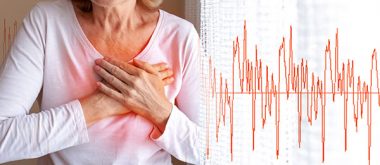Menopause has the potential to impact a woman’s heart. Therefore, it is important to know what signs and symptoms of heart disease can occur and how you can generally prevent heart problems.
Menopause Defined
When a woman enters the menopausal stage, she is not stricken with an illness. Rather, she is experiencing a normal life event all females encounter when they reach their late 40s or early 50s. The event occurs when the reproductive system stops producing sexual and reproductive hormones, such as estrogen and progesterone. Cessation of these substances eventually renders the individual in question incapable of bearing children any longer and might precipitate a host of symptoms. A lack of specific hormones could also impact the function of specific internal systems, including the cardiovascular tract.
How Menopause Impacts the Heart
Arguably, the most significant connection between menopause and the potential onset of heart ailments is estrogen. The hormone is said to provide a natural buffer against the development of coronary artery disease (the condition that often precipitates heart attacks) because of its ability to prevent the collection of arterial plaque from collecting on blood vessel walls.
Additionally, medical professionals opine that estrogen also strengthens blood vessels, which enables circulation to flow efficiently and without interruptions. Menopausal and post-menopausal women with a family history of heart disease or whom possess other risk factors for developing the ailment (smoking, diabetes, inactive lifestyle, poor diet, for example) might have an even greater risk of heart-related problems.
The loss of estrogen and other hormones might also result in a loss of muscle, increased accumulation of fat, and eventual weight gain. Increased body weight can tax the heart and cardiovascular system, thus increasing the chances of illness.
Signs and Symptoms of Heart Disease
Menopausal and post-menopausal women might experience any or all of the following five symptoms that may indicate the presence of a heart-related malady:
 Hypertension
Hypertension
Also known as high blood pressure, this condition occurs when the heart pumps blood at too great a force. If left unchecked or untreated, hypertension could cause damage to blood vessels and precipitate heart attacks and strokes. The onset of high blood pressure during or after entering the menopausal stage could indicate trouble, especially in women who did not have the condition earlier in life.
Elevated Cholesterol Readings
High cholesterol can often precipitate blood vessel disorders that ultimately lead to strokes and heart attacks. Elevated readings in post-menopausal women might necessitate further investigation and significant lifestyle changes.
Shortness of Breath
Though shortness of breath might be an indication of numerous other illnesses, in menopausal women; it might indicate an underlying heart problem.
Palpitations
These alarming symptoms occur when the strength of the heart’s contraction is stronger than usual. When they happen, an impacted individual might feel their heart “pounding” or notice that their pulse is much faster than normal.
Weight Gain
As previously mentioned, diminished systemic estrogen concentrations can cause increased body weight. Such an occurrence places additional strain on the cardiovascular system and could precipitate the onset of heart disease or exacerbate any underlying condition.
Other Symptoms
Additionally, menopausal and post-menopausal women with heart disease might experience other symptoms like headaches, heart rhythm irregularities (arrhythmias), chest pains, vertigo, unexplained swelling of the extremities, and jaw pain.
Methods of Preventing or Alleviating Symptoms of Heart Trouble
Menopausal and post-menopausal women might prevent the onset of heart issues or alleviate associated symptoms by employing any or a combination of the following techniques:
- Consume a Healthy Diet: Eating a diet high in fruits, vegetables and grain products in lieu of a meal plan consisting of frozen, preserved and canned foods high in potentially detrimental substances like fat and salt could either play in a role in preventing heart disease or easing associated manifestations.
- Stay Physically Active : Exercise stimulates the cardiovascular system by improving circulation and strengthening heart muscle. In addition, physical activity also builds muscle and can help the body shed excess fat.
- Stop Smoking : Cigarette smoking taxes the heart and threatens blood vessel health.
- Monitor Your Health : Menopausal women are urged to receive a thorough medical evaluation. These health assessments might identify any potential issues, which enables a physician a greater ability to treat these conditions.





